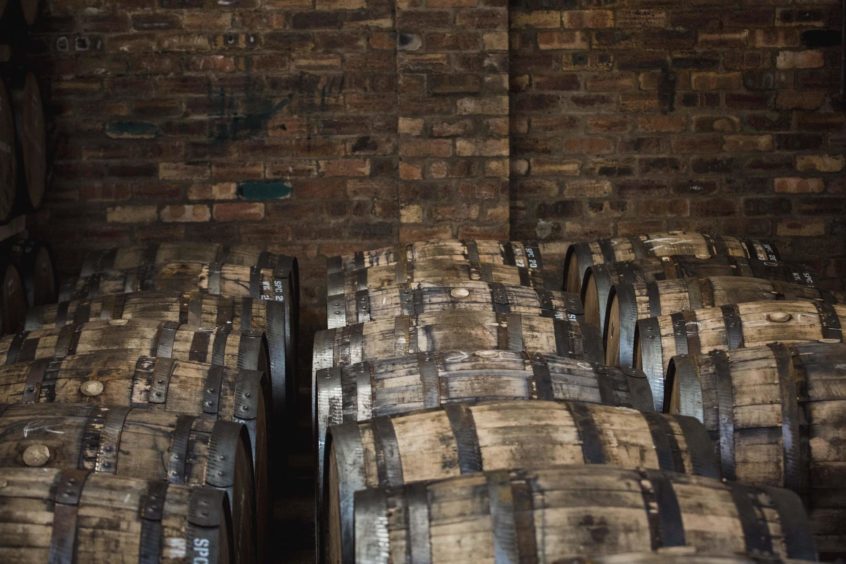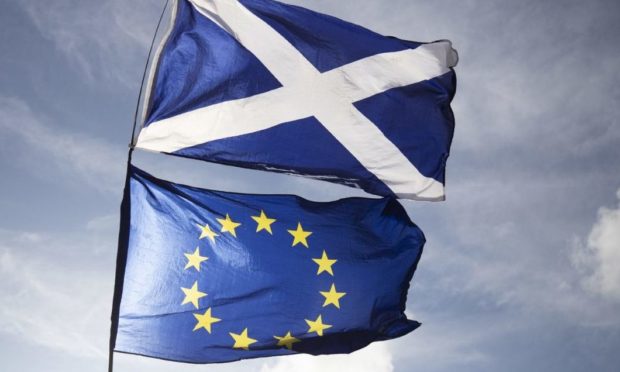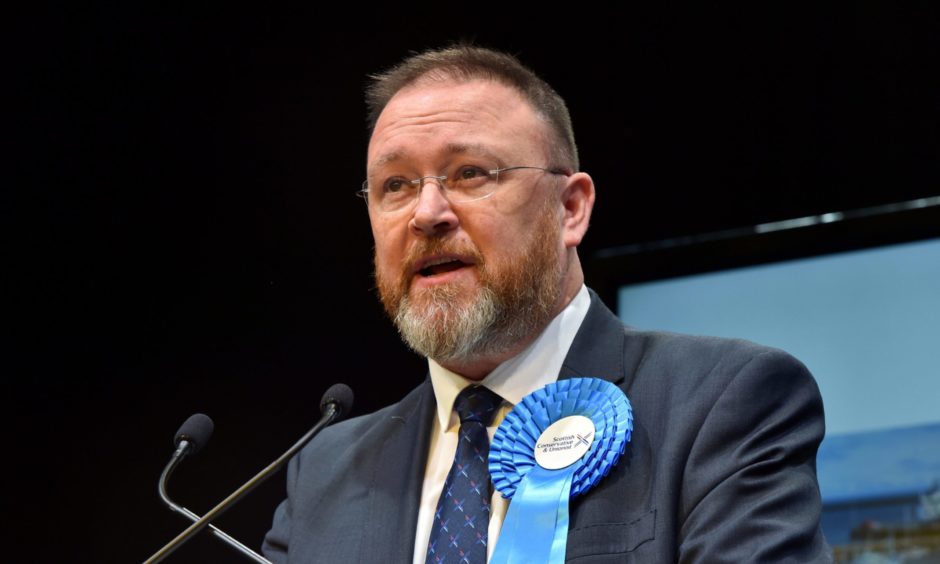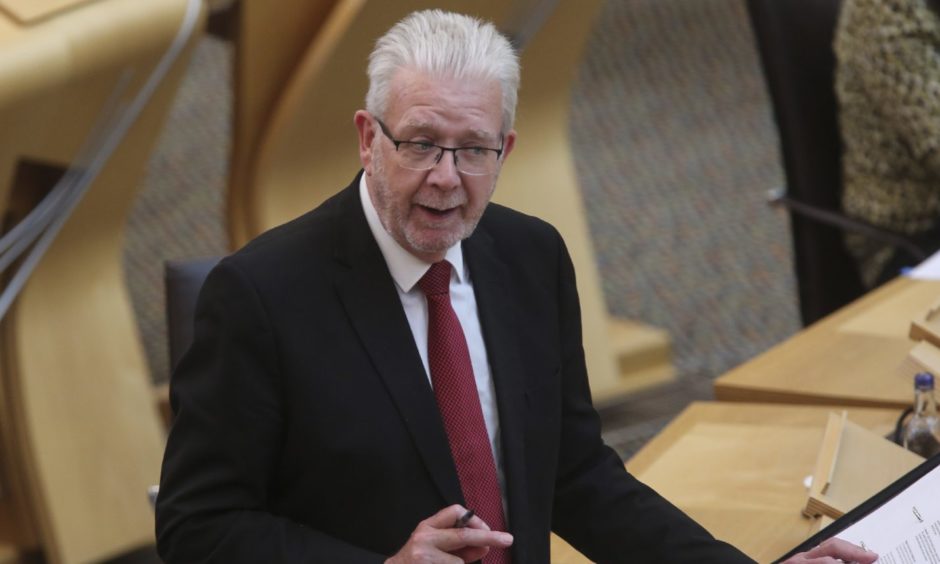Under Secretary of State for Scotland David Duguid has been criticised for claiming trade tariffs were “not necessarily the end of the world”.
Mr Duguid, Scottish Conservative MP for Banff and Buchan, said people might not be able to get “the pasta shapes” they like, but trade with Europe would continue in the event of a no-deal exit.
Negotiations between the EU and the UK Government are to spill into next week, after Sunday’s deadline on finalising the agreement came and went without resolution.
Holyrood Cabinet Secretary for Europe Mike Russell slammed the MP’s comments, saying tariffs would be “a disaster”.
What is a tariff?
A tariff, in the simplest sense, is a tax imposed by one country on another’s imported goods.
One of the more recent tariffs placed on UK goods is the 25% one placed on single malt scotch whisky by the American government.
The Trump administration placed the “huge” levy on whisky as part of a dispute over subsidies with Airbus in the EU and Boeing, two aircraft manufacturers.
In November, the EU hit $4bn of US goods with duties of up to 25% in retaliation for illegal state aid given to American aerospace giant Boeing.
The industry continues to be seriously affected by the 25% tariff on single malt Scotch whisky to the United States in place since October last year, which has led to a significant decline in exports to our most valuable market of around £30m every month.”
The Scotch Whisky Association
Last week, the UK Government announced it would suspend tariffs on Boeing on January 1.
There has been no indication on the US side the “crippling” 25% imposition would be lifted on single malt.
The SNP claim the whisky industry could now be hit by a “double whammy” of American and European tariffs, fearing even further harm to whisky exports.
According to new figures from the Scottish Parliament Information Centre (SPICe), tariffs on the Scotch whisky sector imposed by the US in October 2019 cost the industry £176 million in the first part of 2020 alone.

The type of tariff placed on whisky exports to the US are different to the ones which would be placed on those going to Europe.
The Scotch Whisky Association say they are prepared to “weather any disruption” brought by Brexit, but implored the UK Government to push for an exit deal.
Tariffs put on single malt whisky by the US have led to a “serious decline” in export to the industry’s largest market.
A spokeswoman for the SWA said: “The Scotch Whisky industry continues to support a trade deal between the UK and the EU.
“The EU is an important market for Scotch Whisky and our largest export region, accounting for 30% of exports in 2019, valued at £1.47bn. UK and EU negotiators should intensify discussions to deliver a deal which allows for zero tariffs on all goods, protects UK and EU geographical indications, and puts in place governance structures to limit any new barriers to trade from forming.
“The Scotch Whisky industry is well-positioned to weather any disruption brought about from Brexit, however we still want a free trade agreement to be in place to ensure the process is as seamless as possible during a challenging time for distillers.
“New customs and excise procedures will apply to UK/EU trade from January 1 2021, and it is a race against time for businesses to receive all the technical guidance they need. The UK Government is putting in place new IT systems to manage data and declarations, and these must be reliable to ensure imports and exports flow smoothly.
“Industry concerns about adjusting to a new trading relationship with the EU at the end of the transition period have been compounded by the ongoing impact of Covid-19 lockdowns and disruption to the hospitality trade in the UK and our global markets.
“The industry continues to be seriously affected by the 25% tariff on single malt Scotch whisky to the United States in place since October last year, which has led to a significant decline in exports to our most valuable market of around £30m every month.
“Removing the tariffs will alleviate significant pressure on the Scotch Whisky industry and allow us to focus on making the most of the UK’s new independent trade policy and playing our part in the post-Covid economic recovery.”
Scaremongering
The Scottish minister, who replaced Douglas Ross in the role after the latter resigned over the Dominic Cummings “Barnard Castle debacle“, accused a number of MPs and MSPs of “scaremongering” around no-deal Brexit.
He told BBC Politics Scotland: “There is a lot of scaremongering going around, not least by the SNP and others who would have us believe that the sky is going to fall down.”
Mr Duguid went on to say he could not guarantee there would not be food shortages after Brexit, calling it “hypothetical”.
He added: “You may not get the shape of pasta you like, but there will not be the kind of shortages that I think has been reported.”
Mr Russell told the same show that tariffs would be “a disaster”.
“For Mr Duguid or anybody else to say these are irrelevant is nonsense,” he said.
“Tariffs on land, for example, a big issue in Scotland, would be 60%. That’s not currency fluctuation, that’s disaster.”


